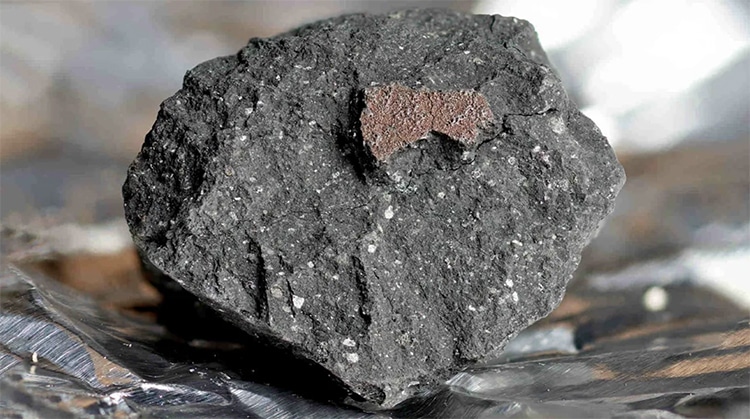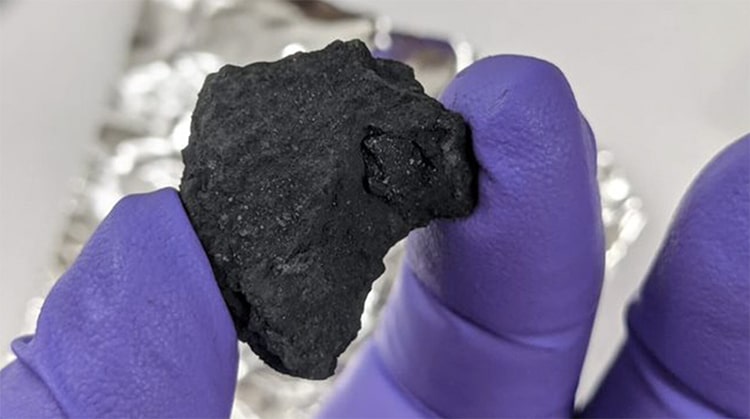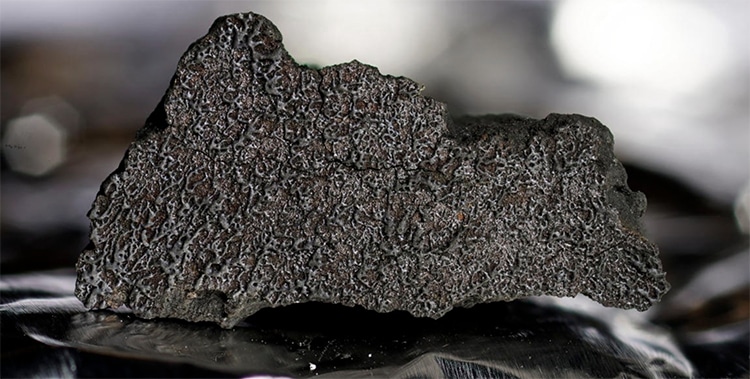(Photo: Natural History Museum)
Water is a scientific enigma.
How did Earth develop its oceans?
Do other planets have water?

The 4.6-billion-year-old meteorite. (Photo: Natural History Museum)
Space exploration may help answer these questions, but others come crashing to Earth in strokes of celestial inspiration.
It contains extra-terrestrial water and organic compounds that shed light on the origin of Earths oceans.
The meteorite is a chunk of 4.6 billion-year-old space rock.

A fragment of meteorite. (Photo:King et al./Science Advances)
It likely dislodged from an asteroid near Jupiter and traveled to Earth within the last million years.
Scientists were able to quickly recover and preserve the meteorite for study.
Their findings have been published inScience Advances.The meteorite is, surprisingly, a rare CM carbonaceous chondrite.

A fragment of the Winchcome meteorite. (Photo:Trustees of the Natural History Museum)
Chemical analysis demonstrated the meteorite has a composition of 11% extra-terrestrial water.
The hydrogen isotope ratio is similar to our Earth’s water.
The meteorite also contains extra-terrestrial amino acids.
These prebiotic molecules are essential to life.
These findings further reinforce the scientific belief that carbonaceous asteroids delivered some of the ingredients of life to Earth.
A fragment of meteorite.
A fragment of the Winchcome meteorite.